34+ Sample Supplier Agreement
-
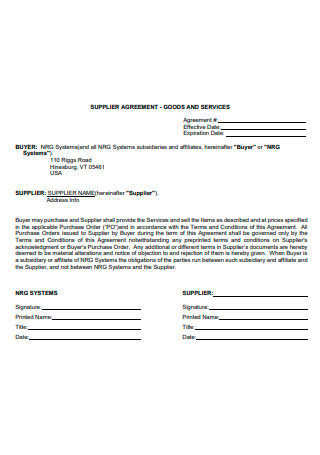
Supplier Agreement Template
download now -
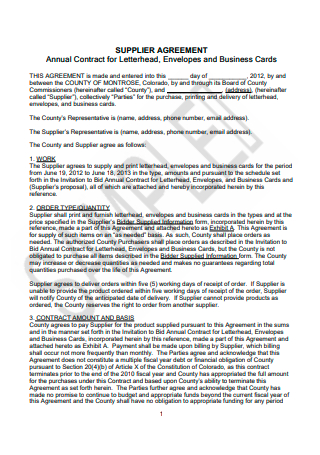
Sample Supplier Agreement
download now -
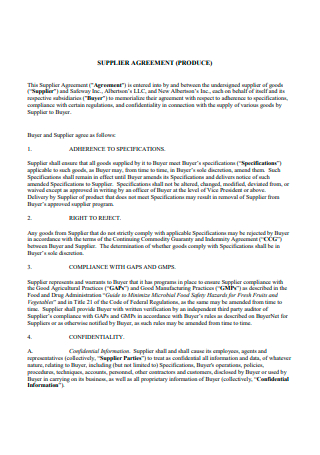
Supplier Produce Agreement
download now -
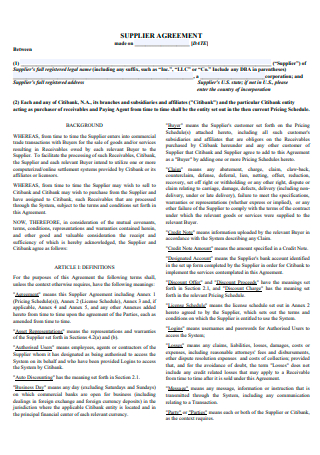
Formal Supplier Agreement
download now -
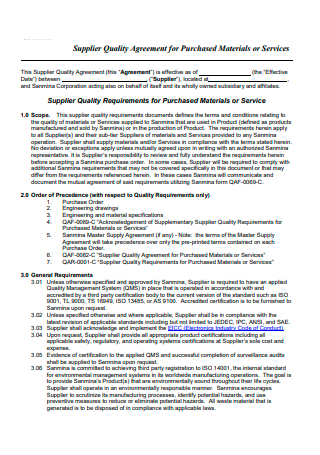
Supplier Quality Agreement
download now -
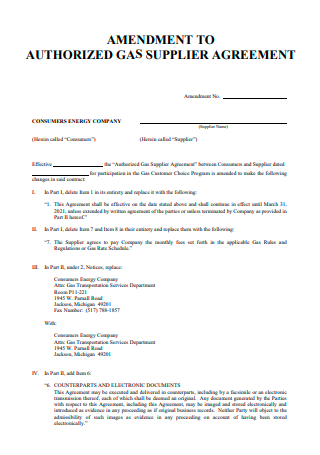
Authorized Gas Supplier Agreement
download now -
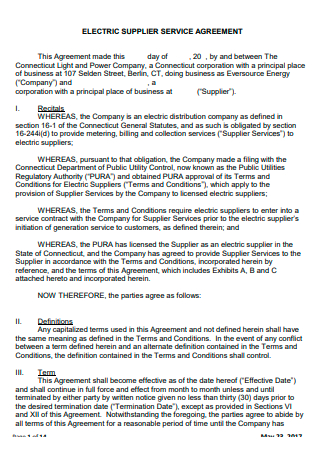
Electric Supplier Service Agreement
download now -
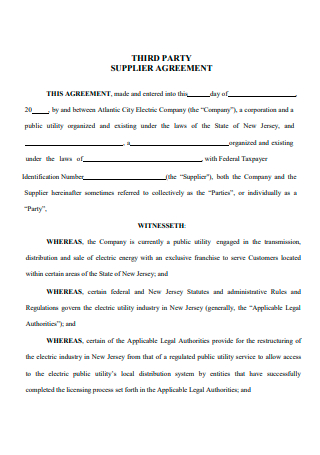
Third-Party Supplier Agreement
download now -
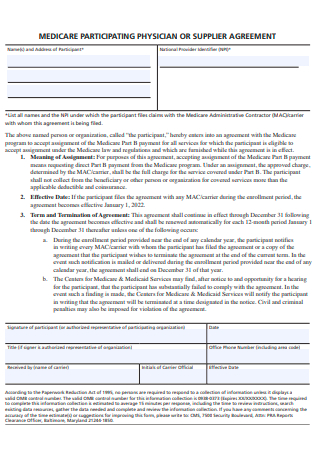
Supplier Agreement Example
download now -
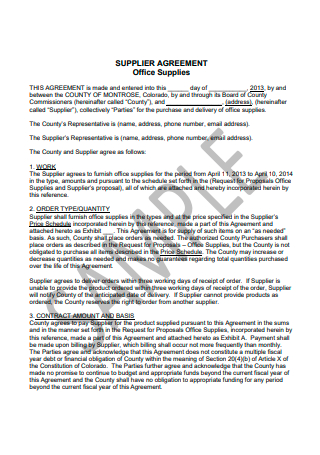
Office Supplier Agreement
download now -
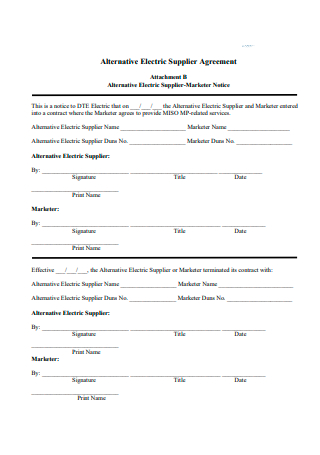
Alternative Electric Supplier Agreement
download now -
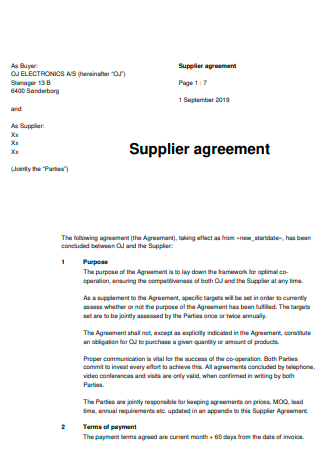
Simple Supplier Agreement
download now -
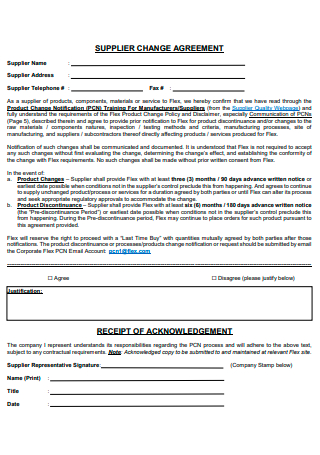
Supplier Change Agreement
download now -
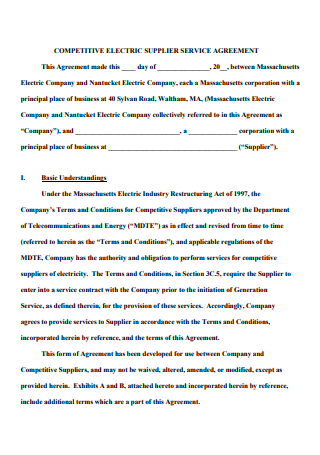
Competitive Electric Supplier Service Agreement
download now -
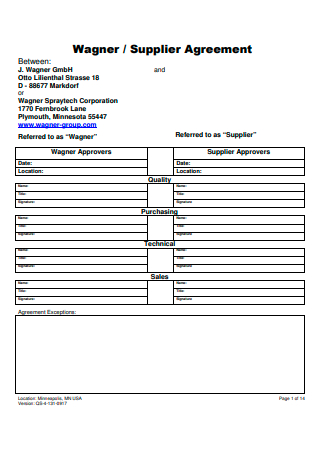
Supplier Agreement Format
download now -
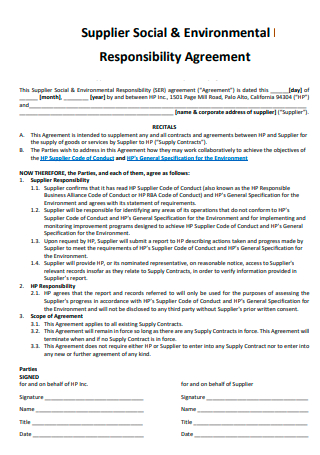
Supplier Social and Environmental Responsibility Agreement
download now -
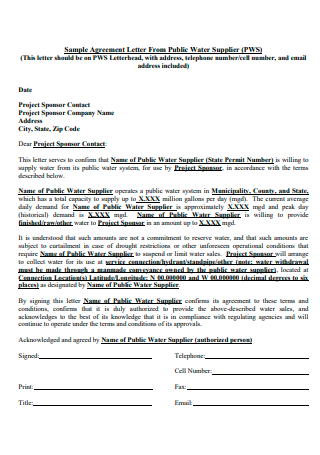
Water Supplier Agreement Letter
download now -
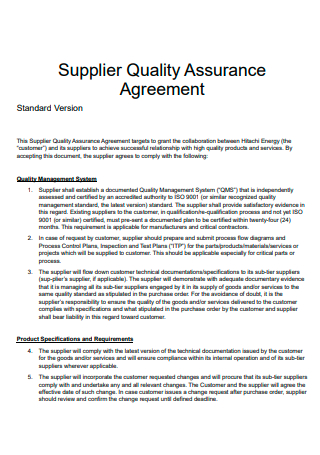
Supplier Quality Assurance Agreement
download now -
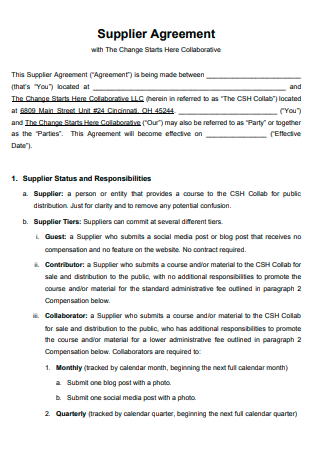
Basic Supplier Agreement
download now -
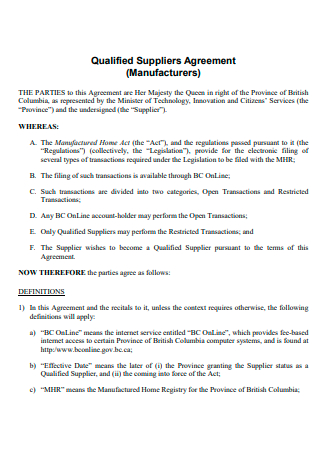
Qualified Supplier Agreement
download now -
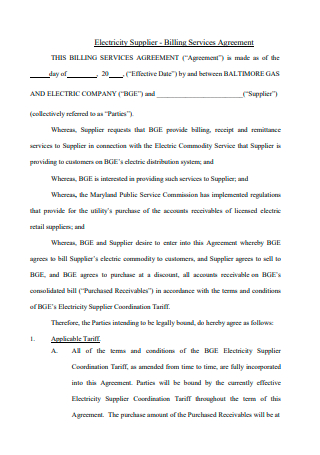
Electricity Supplier Billing Services Agreement
download now -
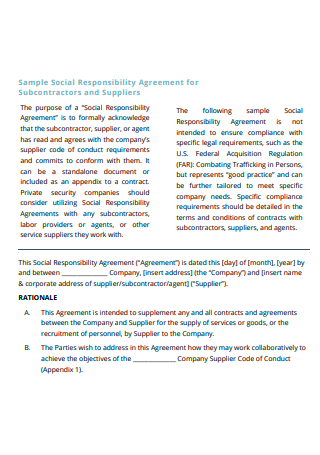
Subcontractors and Suppliers Social Responsibility Agreement
download now -
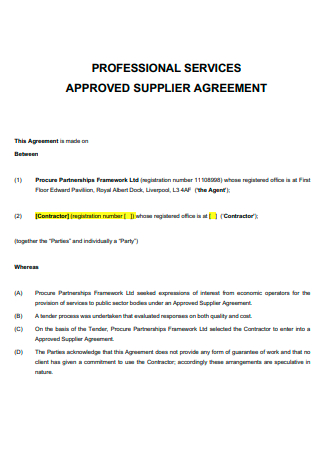
Professional Services Approved Supplier Agreement
download now -
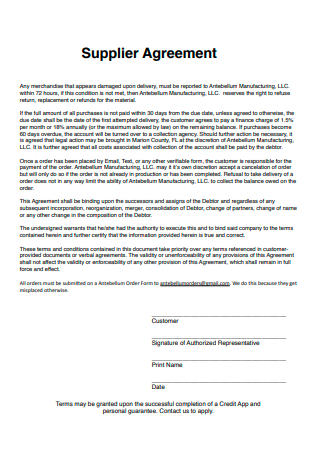
Printable Supplier Agreement
download now -
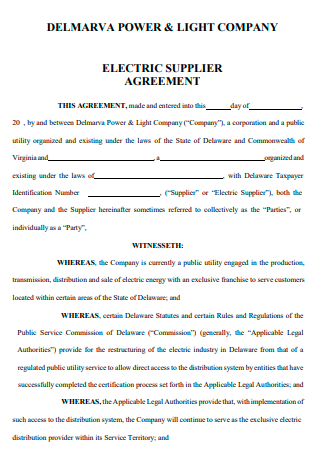
Electric Supplier Agreement
download now -
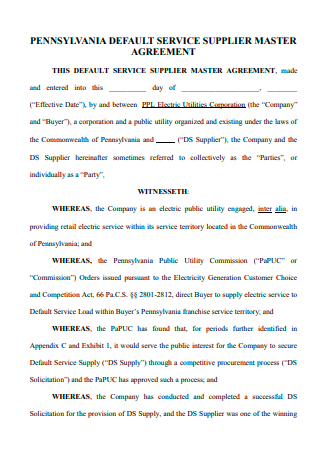
Default Service Supplier Master Agreement
download now -
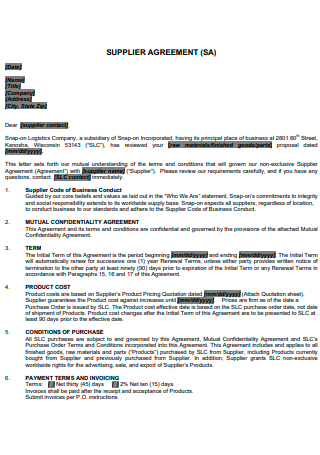
Supplier Agreement in PDF
download now -
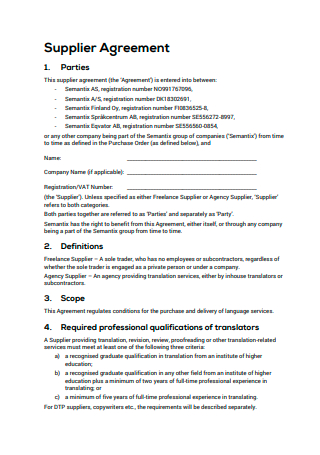
Draft Supplier Agreement
download now -
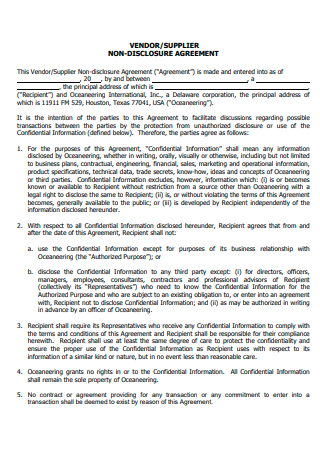
Supplier Non-Disclosure Agreement
download now -
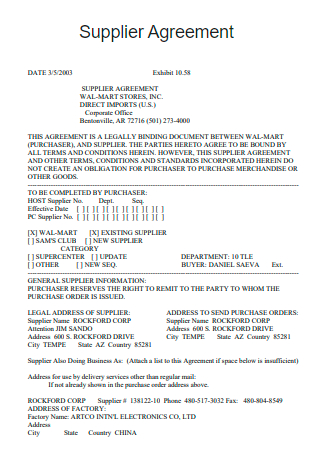
Standard Supplier Agreement
download now -
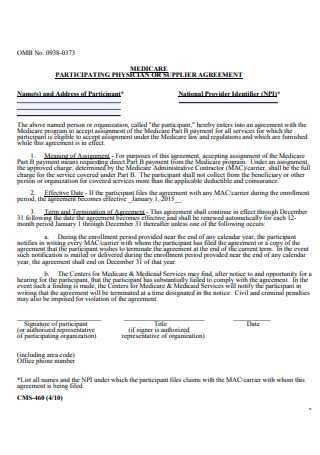
Participating Physician Supplier Agreement
download now -
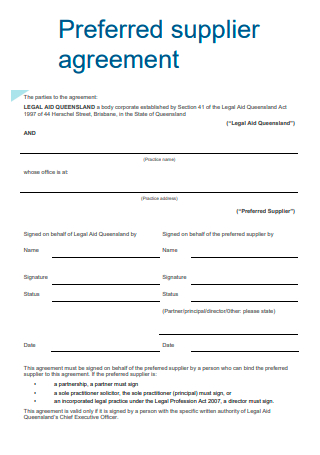
Preferred Supplier Agreement
download now -
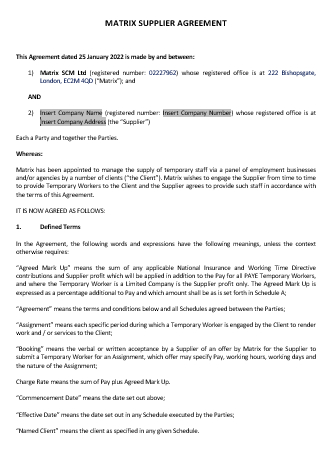
Matrix Supplier Agreement
download now -
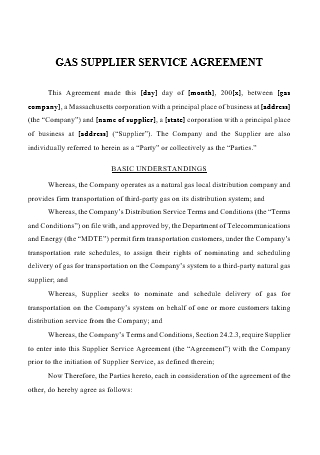
Gas Supplier Service Agreement
download now -
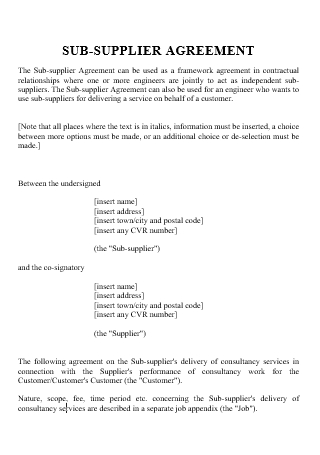
Sub-Supplier Agreement
download now
FREE Supplier Agreement s to Download
34+ Sample Supplier Agreement
a Supplier Agreement?
Benefits of Having a Supplier
Tips Before Considering a Supplier
How To Choose The Right Supplier
FAQs
What is the definition of a customer-supplier agreement?
Is an oral agreement considered a contract?
Is it possible to sue for breach of a verbal agreement?
What Is a Supplier Agreement?
A Supplier Contract is a legally binding agreement between a business and a supplier about supplying agreed-upon goods or services. These contracts define the terms of the parties’ working relationship, i.e., the company and the supplier. The contract’s conditions specify the supplier’s services and for how long. Suppliers are critical in business. They serve as a go-between for the manufacturer and the buyer. An indication of a moral supplier is his commitment to developing relationships with his clients while strictly adhering to the contract’s conditions. Assume you own a t-shirt printing firm. First, you will need to arrange for plain t-shirts, printing equipment, colors, packing material, and delivery. In this situation, you are the business, and the supplier is the one that supplies you with all of the basics, which could be one or numerous items depending on your business’s requirements. According to statistics, the typical corporation has 3,000 suppliers for every $1 billion spent, which means that 174 suppliers receive 80% of the business.
Benefits of Having a Supplier
In today’s procurement age, the supply chain is growing increasingly complex, with one organization utilizing multiple vendors to manufacture their end products. Maintaining solid margins is becoming increasingly difficult with increased pressure on the supply chain to keep costs down for the consumer. Businesses must take a systematic approach to their sourcing strategy to maintain maximum profitability and efficiency. If you’re curious, here are some of its advantages.
Tips Before Considering a Supplier
Choosing a supplier is critical for any business, especially for retailers who rely on outsourced items. A positive working relationship might result in more revenue and more consistent service. In the worst-case scenario, a terrible collaboration can result in dissatisfied consumers, unrealized earnings, and a business failure. If you’re looking for a supplier or are currently exploring potentials, keep these five considerations in mind to assist in identifying the supplier that’s best for your organization.
-
1. Cost of the supplier
The most obvious – but also the most critical – issue to consider while searching for new suppliers is cost. Naturally, you’ll have a budget in mind, as you’ll be aware of the things you’re looking for and the price range you’re ready to pay. Even yet, rates between vendors can vary significantly, so it’s critical to search around and find the best bargain. For example, some suppliers may give discounts for large purchases, while others may compensate for higher prices with higher-quality products. Before selecting the acceptable provider in terms of pricing, you should examine all of your possibilities.
2. Quality
Cost and quality frequently correlate. The more costly the product, the increased the rate. Nevertheless of price, there is an agreed-upon standard of quality, and you want to make sure that your expectations are reached. After all, the last item you want is to sell your products as high-end while your supplier delivers something entirely different. Quality does not refer solely to the physical object but its associated characteristics. Are the products adequately wrapped to protect them during transit? Are they nicely labeled? Speak with prospective vendors to ascertain the scope of their services – you don’t want to sign a contract only to be dissatisfied.
3. Reputation and prior experience
It’s critical to keep in mind that you’re essentially entering into a long-term relationship when you choose a supplier. As with employing a new employee, you’ll want to see references. Do not be embarrassed to request them: it makes it natural that you would like to hear from firms that have previously worked with specific suppliers. They can provide an honest description of the partnership and highlight any positive or negative aspects. When choosing between two vendors, references can make all the difference. Your supplier selection will have a direct impact on your business. If they deliver a batch of products two weeks late, the client who placed the order will point the finger at you, not the supplier.
4. Cultural affinities
Expectations are only met when both groups are crystal clear. A successful supplier relationship is founded on shared cultural values and attitudes. Speak directly with suppliers to ascertain how they prefer to interact with other businesses. If you desire constant communication but prefer to “get on with it,” this is unlikely to succeed. While you’ll have questions for suppliers, they’ll likely have just as many for you. Utilize this time to determine whether your cultures and expectations are compatible, as this will give you a solid indication of whether the relationship will work.
5. Location
When selecting a supplier, location is critical. If you’re a small firm that built its brand on local expertise, you’ll want to prioritize selecting a supplier who is close and shares your beliefs. On the other hand, if your company desires to develop abroad, you may acquire a supplier from a different country. Selecting a supplier is not a decision to be done lightly, and creating the appropriate connection can take time. For additional information about sourcing a new supplier, go here. Suppose you’re looking for a starting point. In that case, our supplier management software will help you keep track of your present suppliers, permitting you to assess their performance in terms of pricing, quality, and overall level of service.
How To Choose The Right Supplier
It is critical to select the appropriate supplier for your organization. If your supplier is unreliable or fails to produce high-quality products, your business will struggle to deliver competitively priced goods and services that match your consumers’ expectations. Therefore, how do you select the appropriate supplier? Here are five critical measures to follow to ensure you’re sourcing the excellent available products, components, or raw materials.
-
1. Establish your criteria
Establishing criteria in advance enables you to evaluate possible providers on each of the mentioned things and ensure that no critical requirements are overlooked. Simultaneously, you may wish to determine which of your criteria are flexible and which are required. Because suppliers in each business operate slightly differently, there is always a chance you will be unable to discover a provider who checks every box flawlessly. As with dating, understanding which characteristics are indispensable and throwaway can help you swiftly sort the wheat from the chaff.
2. Consider your alternatives.
If you are sure of the type of goods you wish to sell, you may want to visit a supplier directory to determine which vendors supply the product you require. When researching suppliers, it is critical to read evaluations from other businesses. This will most likely provide you with a better understanding of how a supplier will match your expectations.
3. Request for proposals
Once you’ve compiled a shortlist of legitimate wholesalers, dropshipping providers, or suppliers with whom you’d like to collaborate, you can issue a request for bids. You may be required to complete a Request for Proposal (RFP) or a Request for Quotation (RFQ), in which case you should include any pertinent information regarding the items or services, quantities, delivery dates, and quality standards that you require. Additionally, you can speak with vendors regarding their processes and regulations during this process. We strongly advise you to inquire about possible vendors’ planning and sourcing of raw materials. Determine whether the seller engages in dangerous reordering activities or sources materials from questionable sources. This helps ensure that you’re working with a vendor whose supply chain is stable and unlikely to fail, resulting in product shortages on your end.
4. Evaluate submitted bids
After receiving your offers, weigh your options. Compare each supplier to know which one best fits your price and quality requirements. Additionally, you should pay close attention to price, as you do not want to select a supplier who charges too much for its items, thereby reducing your profit margin. You should also do another check at this point to validate the integrity of your supplier’s bid. If you’re working with a dropship supplier or wholesaler, you can verify their legality by obtaining a product sample and proof of ISO compliance. Legally, if you end up selling things that belong to another company—even if your supplier stole the products—you are still implicated in the fraud. After selecting an offer, speak with the provider to finalize the contract terms. Ascertain that your contract includes a provision that assures you advantageous pricing that protects your profit margin. If you’re concerned about the contract’s validity, you may always see a lawyer to assist you in deciphering the legalese. Additionally, you can sign a short-term contract as a trial run. That way, if things do not work out with your provider, you can terminate the relationship before causing irreparable harm to your organization.
5. Maintain an eye on supplier performance.
Nobody wants to work with an unreliable provider. Maintain close monitoring of your vendor to ensure they adhere to their agreements. Suppose you discover they consistently ship orders late, send incomplete orders, or give substandard items. In that case, you may utilize this information to collaborate with your supplier to improve operations in a mutually advantageous manner. If this does not function, you may have grounds to terminate your contract and severe ties with that supplier. This enables you to begin with a new supplier. Also, it will help if you track cost efficiency over time. Simply because you negotiated a good deal a year ago does not guarantee it is still a good offer. Communicate openly with your supplier about your requirements, and they will frequently be more willing to work with you to create a bargain that meets everyone’s expectations.
FAQs
What is the definition of a customer-supplier agreement?
A supplier contract or agreement is an arrangement between a business and a supplier to supply agreed-upon products or services. It is an honestly binding document that serves as the foundation for evaluating the supplier’s performance.
Is an oral agreement considered a contract?
A verbal contract is a legally valid but unwritten agreement containing all standard contract characteristics and does not violate the Frauds Statute.
Is it possible to sue for breach of a verbal agreement?
Yes, even if there was no handshake agreement, you can sue for breach of a verbal contract. If one party accepts the services, the parties have very certainly struck an enforceable contract. While oral agreements are just as valid as written contracts, they are more challenging to prove.
Because your supplier has the potential to make or break your organization, it is critical to select the outstanding possible provider. You may enhance your chances of finding a suitable supplier by clearly outlining your requirements upfront, asking pertinent questions, and analyzing bids with an open mind. Additionally, it is critical to safeguard yourself by conducting due diligence to ensure you are working with a trustworthy provider. After working with your supplier, you can analyze the relationship to ensure that it is beneficial to you and finalize the agreement.
